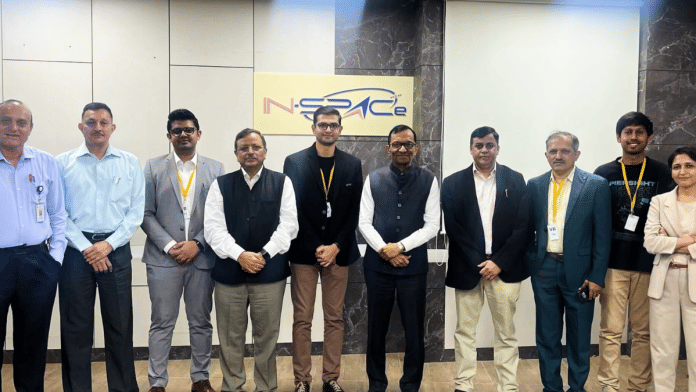New Delhi: An Indian consortium led by Bengaluru-based space tech company PixxelSpace will now design, build and operate the country’s first fully indigenous commercial Earth Observation satellite series.
The consortium bagged IN-SPACe’s contract to launch a 12-satellite constellation for the next five years.
The Indian National Space Promotion and Authorisation Centre (IN-SPACe)—India’s space regulator and promoter—announced on Tuesday that the consortium comprising PixxelSpace, Piersight Space, Satsure Analytics India, and Dhruva Space was chosen to operate India’s first Earth Observation Satellite System (EOSS) in a public-private partnership model.
The consortium will invest over Rs 1,200 crore over the next five years to launch a constellation of 12 EO (earth observation) satellites, which will be equipped with panchromatic, multispectral, hyperspectral, and microwave synthetic aperture radar (SAR) sensors.
SAR satellites are a type of EOS that uses radar technology to create images of the Earth’s surface. What makes it different from the traditional optical satellites is that they can operate in all weather conditions—day or night—while also penetrating clouds and thick vegetation.
“This initiative signals the coming of age of India’s private space industry in the space sector,” IN-SPACe chairperson Pawan Goenka said, announcing the partnership. “It demonstrates the capability and confidence of Indian companies to lead large-scale, technologically advanced, and commercially viable space missions that serve both national and global markets.”
The promises
IN-SPACe officials said that the satellite constellation will deliver Analysis Ready Data (ARD) and Value-Added Services (VAS), which will be equipped with features for climate change monitoring, disaster management, agriculture, infrastructure, marine surveillance, national security, and urban planning, while also catering to the global demand for high-quality geospatial intelligence.
This mission will generate high-resolution, indigenous satellite data, which will go on to significantly reduce India’s reliance on foreign sources, ensure data sovereignty, and position the country among the global leaders in space-based data solutions.
Over the next four years, the Earth observation constellation will be deployed in a phased manner to ensure continuous service upgrades and expanded coverage. Once operational, it promises to be among the most advanced Earth observation systems in the world, according to IN-SPACe, which will be designed, built and operated entirely in India.
“This initiative reaffirms the government of India’s commitment to space sector reforms and to enabling Indian industry to emerge as a major global player in the space economy,” Goenka said.
(Edited by Tony Rai)






